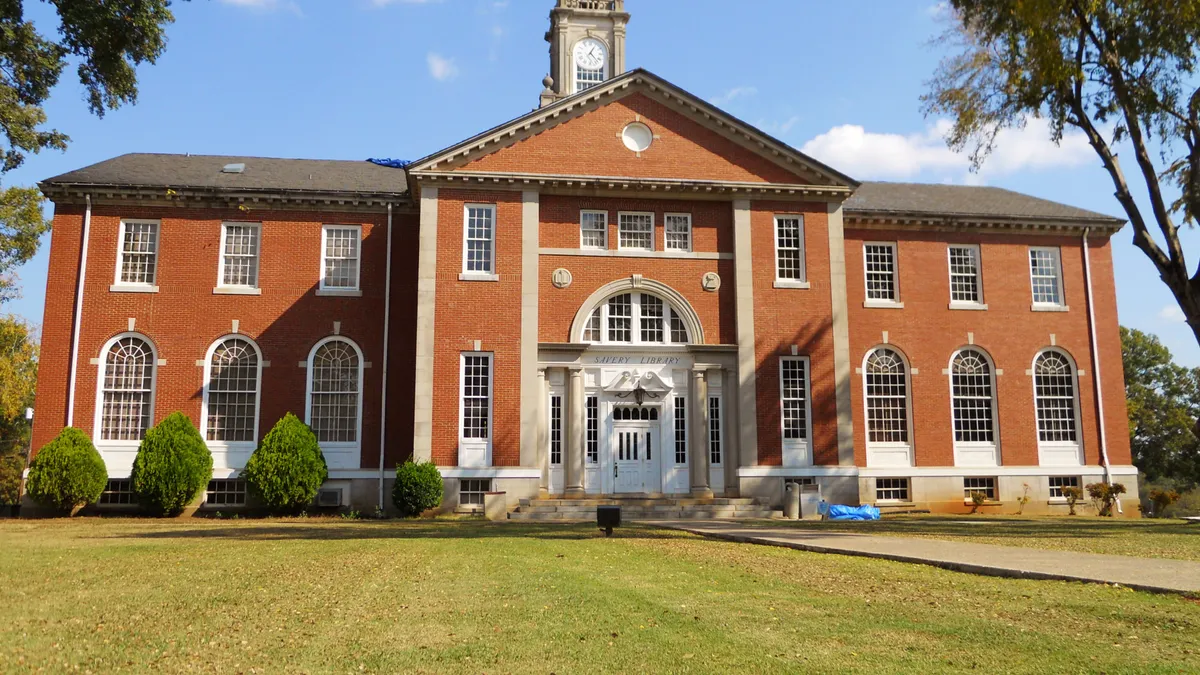HOPE (Hope Enterprise Corporation / Hope Credit Union) signaled its ongoing commitment to historically black colleges and universities (HBCUs) with a $15 million working capital loan to Talladega College to empower the college to restructure its balance sheet and bolster its long-term viability.
The Talladega loan is the latest example of HOPE’s alliance with HBCUs to increase economic mobility in the Deep South. In 2019, HOPE published and disseminated the “HBCU-CDFI Economic Mobility Guide,” a seminal analysis that outlined key outcomes from collaboration between Jackson State University, Mississippi Valley State University and HOPE to improve conditions in under resourced rural and urban areas. HBCUs have long played a critical role in moving people along the economic continuum. Similarly, Community Development Financial Institutions, or CDFIs, invest in people and places that have been historically underbanked.
HOPE has generated over $60 million in investments to support HBCUs across the Deep South. Examples include Oakwood University’s Healthy Campus 2020 program, a strategic initiative established to address poor health outcomes and preventable diseases among students and to help address health, food and job insecurity faced by low-income residents of Northwest Alabama; and financing that enabled Fisk University to finance the renovation of four historic buildings to enhance student services and academic programs, and complete technological and security upgrades throughout the campus.
“HBCUs make an outsized contribution to the prosperity of people and communities in the Deep South. Our investment in Talladega, Oakwood and Fisk reflect the alignment of mission and values between HOPE, HBCUs, and the communities they serve,” said HOPE CEO Bill Bynum.
HOPE’s investment in Talladega College comes at a pivotal time for Alabama’s first private historically black liberal arts college, known for academic excellence for over 150 years. The infusion of working capital is expected to enhance the institution’s cash flow, support operational needs, and build a foundation for future growth. This initiative marks a key milestone in the college’s journey toward long-term sustainability following a series of strategic actions implemented since September 2024.
HOPE provides broad-based support for HBCUs. Beyond financing for campus facilities and the surrounding communities, HOPE places a priority on being a financial resource to HBCU faculty, staff, students, alumni and their families, which are often underserved by traditional banks. HOPE is also the primary financial institution for the HBCU Athletic Conference, the nation’s largest athletic conference for private HBCUs.
“Our support for HBCUs is about more than dollars, or even the institutions themselves — it is an investment in the economy of the entire nation. When HBCUs succeed, they equip our future workforce, future entrepreneurs and future leaders to drive an economy where everyone can prosper,” said Bynum.

